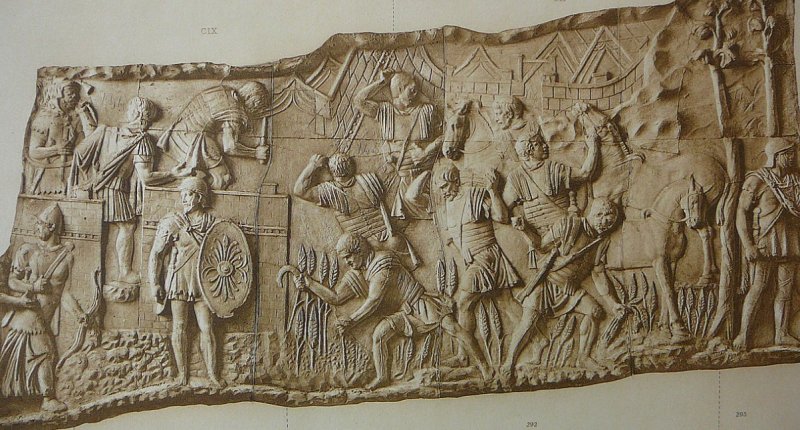Secret Police In Ancient Rome – Frumentarii: Who Were They And What Was Their Role?
A. Sutherland - AncientPages.com - Frumentarii' was a special military elite in Roman Empire that served as the emperor's secret police.
At the turn of the second and third century AD, they watched the actions of senators, high-ranking military men, and Christians.
Some frumentarii take care of the supplies, harvesting the wheat ( Colonna di Traiano , relief n.81). Image credit: Conrad Cichorius: "Die Reliefs der Traianssäule" - Public Domain
Initially, however, they were collectors of wheat in the Roman Empire. They dealt with tax collection and were responsible for controlling and regulating grain deliveries to the capital.
However, their role evolved during Hadrian's reign (117-138 CE); they expanded and focused on internal stabilization. Their tasks also involved arrests of suspected individuals.
The frumentarii' was Emperor Hadrian's special unit of the Praetorians to control the political situation in Rome during the emperor's absence.
His secret police unit had to protect the emperor from possible conspiracies and investigate significant individuals and their lives.
Hadrian wanted to know much, and as he once said, "he wanted to know things that should not be known," which probably applied to the private lives of individuals in his vicinity.
According to Hadrian, knowledge – of whatever sort – was power.
There is very little information about this unit, but ancient inscriptions on gravestones confirm that frumentarii, who always worked in uniforms, were usually attached to individual legions.
They carried out particular tasks in different places and were stationed at the Castra Peregrina in Rome. They did not hide themselves and lived openly. Their uniforms determined their affiliation.
According to studies, the frumentarii unit had high moral and social status and was very proud. The inscriptions on their gravestones attest to it.
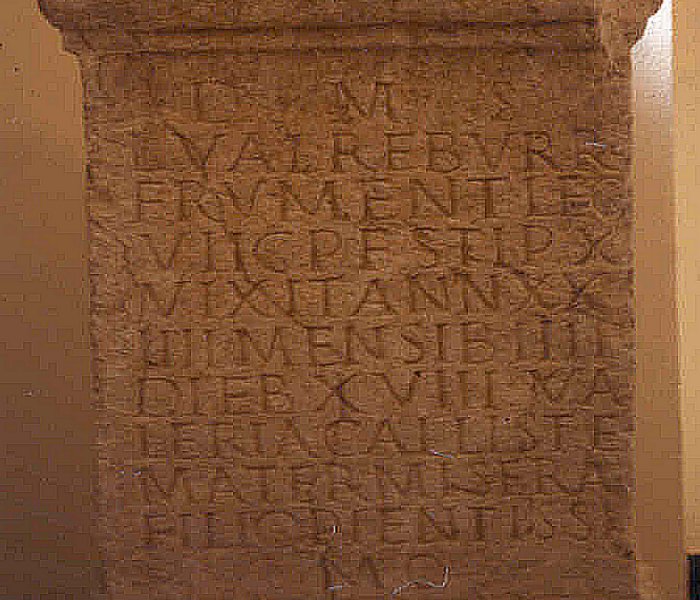 Inscription about a frumentarius from Legio VII Gemina. Image credit: Caligatus - Public Domain
Inscription about a frumentarius from Legio VII Gemina. Image credit: Caligatus - Public Domain
Frumentarii Were Not Entirely Innocent
These officers were disliked by Roman society because, among others, they spied on people.
Due to abuses committed by this secret police, the emperor Diocletian (284-305 CE) dissolved the unit and replaced it with the so-called agentes in rebus ("general agents"). This change was based on the fact that they were recruited from civilians, not military men. The unit contained from 200 to 1000 men.
The changes introduced by Diocletian were unsuccessful, and abuses committed by the frumentarii agents continued. They entirely operated in the Byzantine Empire until the 8th century.
Many were very privileged; as a control organ superior to the local governors, they monitored the entire Roman province.
They were feared depending on their relations, and at the same time, their work was highly appreciated by the emperors who gave them promotions to hold important government positions.
Senior officers who served well and impeccably had opportunities to work in the Praetorian prefectures, where they exercised their control over the bureaucracy.
They had civil and criminal judicial immunity; for example, inspectors performed their functions above the provinces.
Written by - A. Sutherland - AncientPages.com Senior Staff Writer
Updated on October 6, 2023
Copyright © AncientPages.com All rights reserved. This material may not be published, broadcast, rewritten or redistributed in whole or part without the express written permission of AncientPages.com
Expand for referencesReferences:
Speller E. Following Hadrian
Goldsworthy A. The Complete Roman Army
More From Ancient Pages
-
 Ancient Highways Unearthed In Arabia
Archaeology | Jan 14, 2022
Ancient Highways Unearthed In Arabia
Archaeology | Jan 14, 2022 -
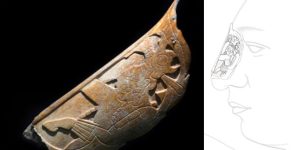 Ancient Maya Nose Ornament Made Of Human Bone Discovered In Palenque
Archaeology | Sep 24, 2023
Ancient Maya Nose Ornament Made Of Human Bone Discovered In Palenque
Archaeology | Sep 24, 2023 -
 On This Day In History: Coverdale Bible Printed In English For The First Time – On Oct 4, 1535
News | Oct 4, 2016
On This Day In History: Coverdale Bible Printed In English For The First Time – On Oct 4, 1535
News | Oct 4, 2016 -
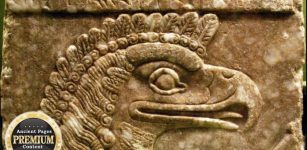 Adapa – Why Did The Wise Apkallu Refuse The Gift Of Immortality?
Featured Stories | May 9, 2019
Adapa – Why Did The Wise Apkallu Refuse The Gift Of Immortality?
Featured Stories | May 9, 2019 -
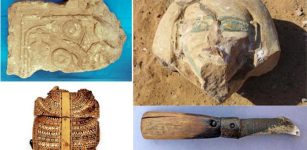 20 Mummies Discovered In Greco-Roman Tombs In Aswan, Egypt
Archaeology | Jan 21, 2022
20 Mummies Discovered In Greco-Roman Tombs In Aswan, Egypt
Archaeology | Jan 21, 2022 -
 The Untold History Of The Horse In The American Plains Revealed
Archaeology | Mar 31, 2023
The Untold History Of The Horse In The American Plains Revealed
Archaeology | Mar 31, 2023 -
 Ancient Hindu Sheetal Temple Vandalized – Lord Shiva And Elephant God Ganesha Statues Destroyed
News | Nov 3, 2020
Ancient Hindu Sheetal Temple Vandalized – Lord Shiva And Elephant God Ganesha Statues Destroyed
News | Nov 3, 2020 -
 Secrets Of The Long-Lost Kingdom Of Strathclyde Explored By Archaeologists
Archaeology | Sep 23, 2025
Secrets Of The Long-Lost Kingdom Of Strathclyde Explored By Archaeologists
Archaeology | Sep 23, 2025 -
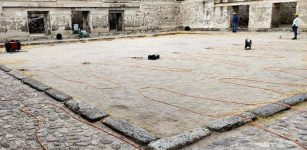 Has The Mysterious Ancient Underground Labyrinth Of Mitla Finally Been Found?
Archaeology | Aug 14, 2023
Has The Mysterious Ancient Underground Labyrinth Of Mitla Finally Been Found?
Archaeology | Aug 14, 2023 -
 Modern Horses Have Lost Their Additional Toes, Scientists Confirm
Evolution | Jun 21, 2023
Modern Horses Have Lost Their Additional Toes, Scientists Confirm
Evolution | Jun 21, 2023 -
 Rare Collection Of Roman Coins Unearthed In Ancient City Of Aizanoi, Turkey
News | Feb 4, 2021
Rare Collection Of Roman Coins Unearthed In Ancient City Of Aizanoi, Turkey
News | Feb 4, 2021 -
 On This Day In History: Army Of Tsar Alexander I Of Russia Enters Paris – On March 31, 1814
News | Mar 31, 2016
On This Day In History: Army Of Tsar Alexander I Of Russia Enters Paris – On March 31, 1814
News | Mar 31, 2016 -
 5,000-Year-Old DNA Could Solve The Mystery Of Genetic Changes In Europe
Archaeology | Mar 8, 2022
5,000-Year-Old DNA Could Solve The Mystery Of Genetic Changes In Europe
Archaeology | Mar 8, 2022 -
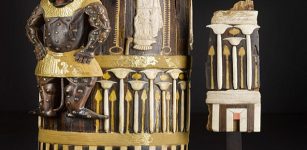 Ancient Egyptian Wooden Box Inscribed For Pharaoh Amenhotep II Is Now Restored
Archaeology | Mar 10, 2017
Ancient Egyptian Wooden Box Inscribed For Pharaoh Amenhotep II Is Now Restored
Archaeology | Mar 10, 2017 -
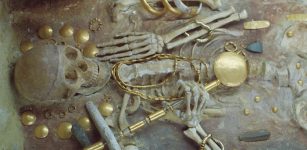 Archaeology Sheds Light On Why Some Ancient Societies Were More Unequal Than Others
Featured Stories | May 25, 2022
Archaeology Sheds Light On Why Some Ancient Societies Were More Unequal Than Others
Featured Stories | May 25, 2022 -
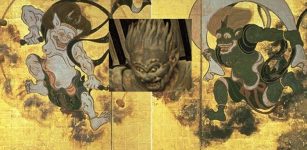 Raijin: Shinto God Of Thunder And Lightning With Three Fingers Representing Past, Present And Future
Featured Stories | Feb 10, 2020
Raijin: Shinto God Of Thunder And Lightning With Three Fingers Representing Past, Present And Future
Featured Stories | Feb 10, 2020 -
 Mysterious Death Of Amy Robsart – Murder, Accident Or Suicide?
Featured Stories | Jun 20, 2024
Mysterious Death Of Amy Robsart – Murder, Accident Or Suicide?
Featured Stories | Jun 20, 2024 -
 On This Day In History: Dr Martin Luther King Was Born – On Jan 15, 1929
News | Jan 15, 2017
On This Day In History: Dr Martin Luther King Was Born – On Jan 15, 1929
News | Jan 15, 2017 -
 Forgotten Graves Of The Knights Templar In Staffordshire Discovered By A Historian?
Archaeology | Aug 19, 2023
Forgotten Graves Of The Knights Templar In Staffordshire Discovered By A Historian?
Archaeology | Aug 19, 2023 -
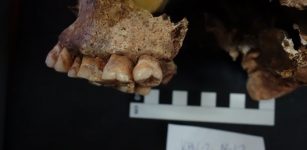 Milk Enabled Massive Steppe Migration
Archaeology | Sep 15, 2021
Milk Enabled Massive Steppe Migration
Archaeology | Sep 15, 2021

